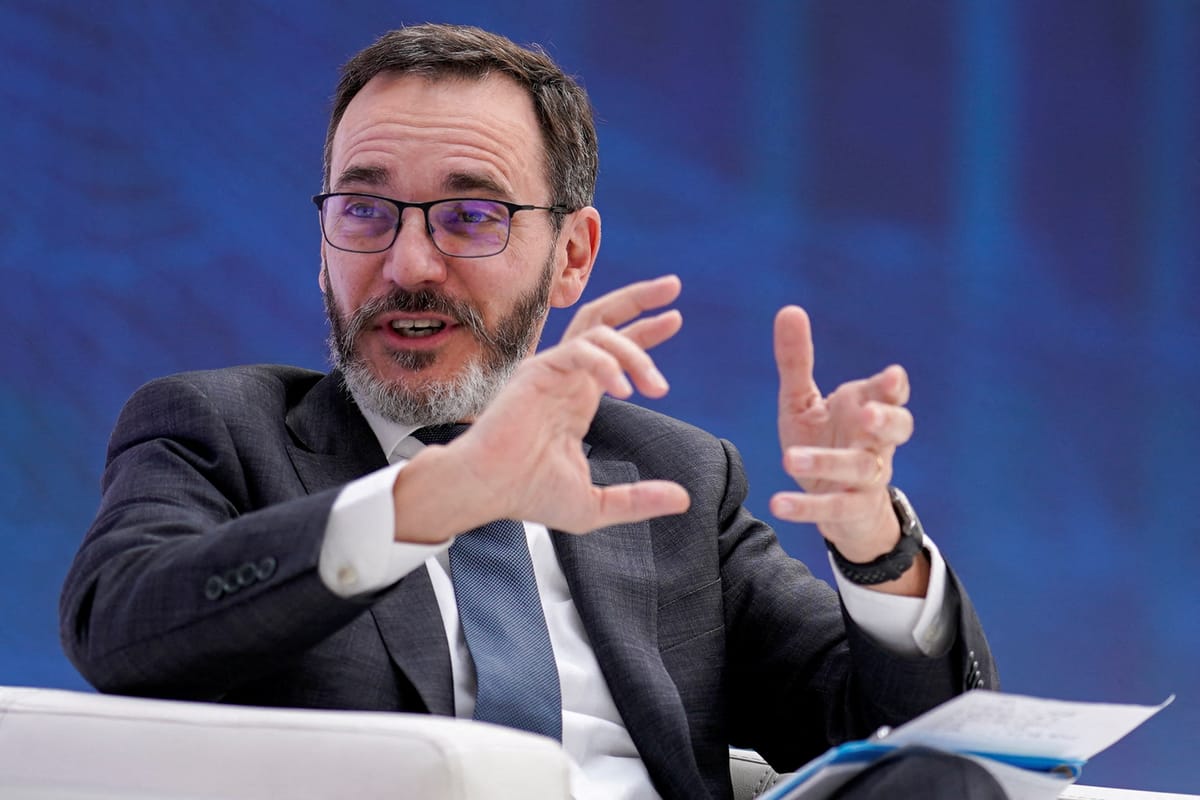The IMF has optimistically revised its growth outlook for this year
On Tuesday, the IMF changed some of its predictions from October, lifting its forecast for growth up to 3.1% for 2024.

A few minutes every morning is all you need.
Stay up to date on the world's Headlines and Human Stories. It's fun, it's factual, it's fluff-free.
The backstory: The International Monetary Fund (IMF), founded in 1944, is an organization with 190 member countries that work together to “achieve sustainable growth and prosperity.” So essentially, the group aims to help stabilize the global economy. It does this by advising its members on how to improve their economies as well as lending money to member countries when they need financial help. It also does a lot of research to help countries develop their economic and trade policies. Based in Washington, the IMF publishes its World Economic Outlook every six months to forecast how the world’s economy is going to grow and change.
More recently: In October, the IMF published its last forecast, with the UK coming in with one of the worst economies of the year and China’s property market slump looming over potential growth in Asia. Overall, the forecast for global economic growth was below the historical average of 3.8%, with 2023’s growth expected to slow to 3% and 2024 to be at 2.9%. This was all off the back of countries hiking interest rates and tightening budgets to fight inflation.
The development: But, on Tuesday, the IMF changed some of its predictions from October, lifting its forecast for growth up to 3.1% for 2024. The IMF’s chief economist, Pierre-Olivier Gourinchas, explained that the world economy is resilient, and we seem to be heading toward a “soft landing” because inflation is declining steadily.
China had stronger growth last year and more government spending to prevent natural disasters, so the IMF revised its growth for this year to 4.6%, up from 4.2%.
Even though this is good news, there are still risks to keep in mind. Houthi attacks in the Red Sea have caused global supply disruptions and spiked prices for shipping goods. The conflict in the Middle East is also a big concern and could cause bigger ripple effects to the economy, but it’s too early to tell. The IMF also said there were 3,000 new trade restrictions introduced by different countries last year, which is almost three times what it was in 2019. These spats between nations could be a bad thing for global trade.
And Russia’s economy is doing a lot better than anyone expected. The nation’s projections since October have more than doubled with Russian President Putin’s military spending in its war against Ukraine. This upgrade was the largest for any economy in the IMF’s recent report.
Key comments:
“The global economy continues to display remarkable resilience, and we are now in the final descent toward a soft landing with inflation declining steadily and growth holding up,” IMF Chief Economist Pierre-Olivier Gourinchas said in a briefing. “But the pace of expansion remains on the slow side, and there might be turbulence ahead.”
“Continued attacks in the Red Sea – through which 11% of global trade flows – and the ongoing war in Ukraine risk generating fresh adverse supply shocks to the global recovery, with spikes in food, energy, and transportation costs,” the IMF said Tuesday.
“It is definitely the case that the Russian economy has been doing better than we were expecting and many others were expecting,” Gourinchas told the Financial Times in an interview.
"In China, the recovery is losing steam, with manufacturing purchasing managers' indexes entering contracting territory from April to August and conditions in the real estate sector weakening further," said the IMF’s report in October.




Comments ()